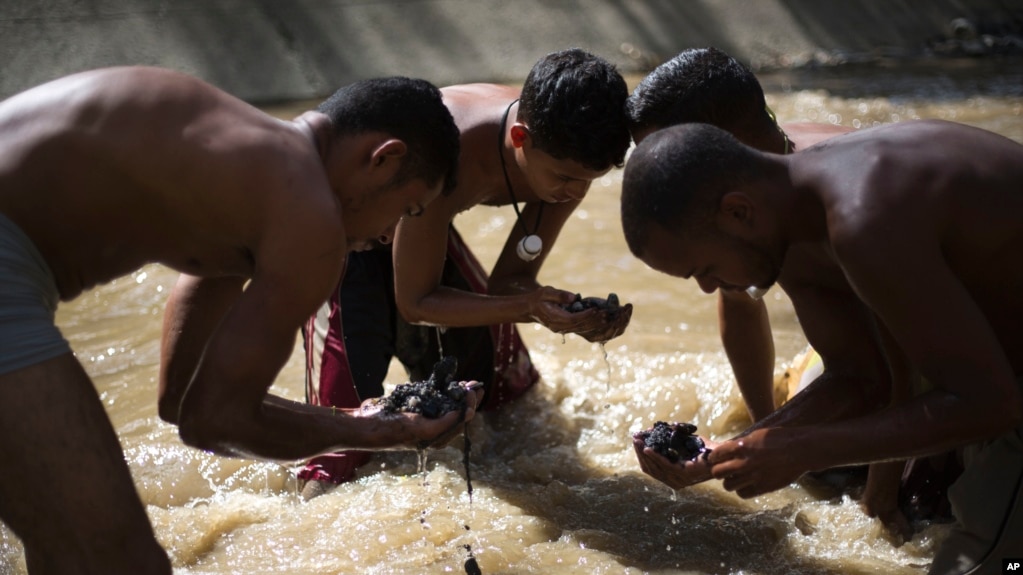By: Emily Green
Impunity Watch Reporter, South America
CARACAS, Venezuela – As the economic crisis in Venezuela deepens, the hunger crisis grows. Impoverished citizens begin riots and fight through mobs to feed their starving families.

To put the crisis in perspective, the opposition-controlled legislature reported that inflation rates topped 2,600 percent in 2017. Now, 81.8 percent of Venezuelan households are in poverty. Venezuelans suffer personal insecurity, food scarcity, medicine shortages, and money insufficiency which has driven 1.2 million people to leave the country. Pope Francis labelled this a humanitarian crisis.
Many struggling citizens have started to accept groceries in exchange for their services. To avoid spiraling prices, people are choosing to receive food for their work. One plumber explained, “I have to adjust to the situation. I ask my customers ‘What do you have in your pantry?’ when we are discussing my fees.
Additionally, looting has become a common practice throughout the country. The Venezuelan Conflict Observatory reported that 400 small protests and 100 instances of looting have taken place across 19 states. In a supermarket in Maracaibo, residents waited in line for hours to buy corn. When they were told that only members of pro-government community councils could make purchases, the line turned into a mob. Angry residents forced their way into the store to grab food before police arrived. Similar situations of mass looting occur all over the country. Trucks, food collection centers, and state-run supermarkets have all been victims.
The Bolivarian National Guard tries to keep order with gunshots and tear gas, but is having a difficult time. The situation is only getting worse as the minimum monthly salary is at US $5, barely enough for a kilogram of meat and a carton of 30 eggs. The government has subsidized a food program to send food to the poorest areas of the country and millions of families depend on them.
On January 11, hunger-driven Venezuelans turned their attention to farms. Groups of desperate citizens broke into a farm in Merida and dismembered about 40 cows for their meat. Videos on social media show men running around a pasture in pursuit of a cow and beating it to death. Ranchers have resorted to paying armed groups to secure their properties.
The coordinator of the Venezuelan Conflict Observatory states, “The desperation, impunity and serious humanitarian crisis that we are experiencing in Venezuela continues to deepen and is leading people to commit this type of crime.”
Correspondingly, poor Venezuelans have turned to the Guaire River in Caracas. Young men and boys search the polluted water for small pieces of metal which may earn them food for their families. The water acts as a sewer for the city’s waste and is known to be filthy. Desperate citizens are ignoring the health risks associated with the water. One native remarked, “As long as I can remember, the Guaire was this open sewage. It certainly seems to reflect the depth and extent of the desperation that this particular crisis has spawned.”
For more information, please see:
PanAm Post – Recent Wave of Looting Shows Extent of Hunger in Venezuela – 15 January 2018
Oil Price – Is Venezuela’s Oil Industry Bouncing Back? – 15 January 2018
Voice of America – Venezuelans Seek Treasure in Polluted River – 14 January 2018
Miami Herald – Hungry Venezuelans rely on work-for-food barter as economy spirals – 12 January 2018



/cdn.vox-cdn.com/uploads/chorus_asset/file/9623029/688251022.jpg)
